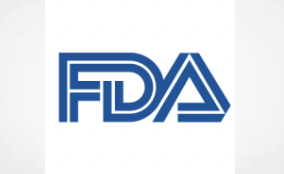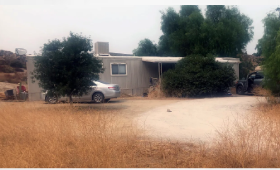Here’s the letter
Dear Manufacturer:
The U.S. Food and Drug Administration (FDA or we) is issuing this letter to ensure that you are aware that Amanita muscaria, its extracts, and certain constituents (muscimol, ibotenic acid, and muscarine), when used or intended for use in conventional food, are unapproved food additives. Food containing such ingredients is adulterated under the Federal Food, Drug, and Cosmetic Act (FD&C Act) and are subject to enforcement action. We remind manufacturers of their responsibility under the FD&C Act to ensure the food they market is safe and lawful. This includes ensuring each substance used in the manufacture of food complies with the food additive provisions in the FD&C Act under the manufacturer’s intended conditions of use.
The FDA’s assessment of these substances is detailed in a memorandum added to the agency’s public inventory. Specifically, FDA determined that Amanita muscaria, its extracts, and certain constituents (muscimol, ibotenic acid, and muscarine), do not meet the Generally Recognized as Safe (GRAS) standard and are unapproved food additives. We conducted this evaluation because we have received serious adverse event reports associated with multiple food products marketed as containing these substances and we reviewed published literature confirming reported human health risks.
As part of FDA’s assessment, the FDA reviewed the publicly available scientific evidence relevant to the safety of the use of A. muscaria, A. muscaria extracts, muscimol, ibotenic acid, and muscarine in food, which included more than 600 unique publications. Our review revealed that there is not enough safety evidence to show the consumption of these substances as food ingredients would be safe. In fact, the information available indicates that their use as food ingredients may be harmful.
The toxic consequences of consumption of A. muscaria mushrooms are well known. For example, the FDA’s Bad Bug Book has long described A. muscaria mushrooms that cause poisoning following ingestion. The Bad Bug Book describes symptoms of A. muscaria ingestion as gastrointestinal symptoms, delirium, and sleepiness with a rapid onset and alternating periods of drowsiness and excitement for several hours after ingestion. With large exposures, for example when introduced into food as an extract or isolated constituents, severe neurological symptoms, such as convulsions and coma, have been reported. While the published literature discusses attempts to detoxify the mushroom, such as by boiling, the literature also reports that these preparation techniques may not completely detoxify the mushrooms. Extracts and isolated muscimol, ibotenic acid, and muscarine, are of even greater concern if used as food ingredients. Adverse event reports to CFSAN’s Adverse Event Reporting System in the last year have reported incidences of central nervous system depression, drowsiness, seizures, and hospitalizations associated with consumption of products containing A. muscaria, its extracts, or certain constituents (muscimol, ibotenic acid, and muscarine). A query of the National Poison Data System reported hundreds of calls in the last year associated with consumption of A. muscaria, its extracts, muscimol, ibotenic acid or muscarine, reporting similar symptoms as well as cardiovascular effects, hallucinations, respiratory depression, and even death.
Under the FD&C Act, any substance used or intended for use in food must be authorized by the FDA for use as a food additive unless that use is Generally Recognized As Safe or GRAS by qualified experts or meets a listed exception to the food additive definition in the FD&C Act. FDA’s regulations specify that GRAS status may be based only on the totality of the relevant, publicly available, and generally accepted safety evidence coupled with a consensus among the community of qualified experts that this evidence shows the intended uses would be safe. You can find more information on the GRAS standard on FDA’s website at https://www.fda.gov/food/food-ingredients-packaging/generally-recognized-safe-gras. The FDA’s safety standard for food ingredients is that there must be a reasonable certainty in the minds of competent scientists that no harm would result from the intended use of the substance.
The FDA will continue to monitor the food supply to help ensure the safety of ingredients in food. Ultimately, it is the responsibility of manufacturers, processors, distributors, and other facility operators to ensure that their food products marketed in the U.S. market are safe and lawful. We appreciate your attention to your responsibilities under the food additive provisions of the FD&C Act.
Sincerely,
/S/
Michael W. Roosevelt
Acting Director
Office of Post Market Assessment
Office of Food Chemical Safety, Dietary
Supplements, and Innovation
Human Foods Program
COMMENTARY
Mycopreneur
FDA vs. AmanitaThe Crackdown We All Knew Was Coming |
| The rise of popularity in magic mushrooms in recent years has yielded a wild west style marketplace with thousands of different brands seeking to ride the psychoactive wave. Many product manufacturers turned to Amanita muscaria due to it’s omission from the U.S. Controlled Substances Act and lack of federal or state regulation – except in the case of Louisiana, where it remains prohibited by law. | |||||||
| It was only a matter of time before regulating authorities in the U.S. moved to take action on this riding tide of psychoactive mushroom productization; Poland considered a ban Amanita muscaria in October 2024 though backlash from citizens in the heavily mycophilic culture led to them pressing pause on the idea. | |||||||
| The infamous ‘Diamond Shruumz’ case from earlier this year in which 180 hospitalizations and 3 potentially associated deaths were reported as a result of mislabeled ‘magic mushroom chocolates’ containing muscimol (one of the primary constituents of Amanita muscaria) among psilocin and other chemicals has been cited far and wide by regulators and media alike as a watershed moment in the turning tide against a free for all underground marketplace of unregulated mushroom products. If you’ll allow me to put on my tinfoil hate for a moment, let us consider that the U.S. Government has set a precedent of intentionally poisoning the alcohol supply during prohibition as a means of curtailing the illicit trade and introducing a legal and regulated market controlled by said government. | |||||||
| In any event, the FDA issued a “Letter to Industry on the Use of Amanita Muscaria or its Constituents in Food” yesterday notifying Amanita muscaria product manufacturers that they are now on high alert and will likely be cracking down on manufacturers productizing Amanita muscaria in gummies, chocolates, and any number of other possible permutations that exist and are marketed and sold as ‘Amanita’. | |||||||
| As opposed to psilocybin mushrooms, which are ubiquitously homegrown and cultivated in labs worldwide, not a single Amanita muscaria mushroom has ever been successfully cultivated in a lab – meaning that the bulk of the products that the FDA is moving against contain isolated and synthesized extracts of checmical constituents of Amanita muscaria rather than the whole fruiting body. This again is an unfair characterization of Amanita, considering that for example the Diamond Shruumz mushroom only contained Muscimol extract and not any of the other numerous alkaloids contained within the whole mushroom. | |||||||
| Regardless, the wave is set in motion for impending regulation of the vast and nebulous underground mushroom product marketplace, and in this instance it’s Amanita that has been placed in the crosshairs of federal legislators. But if anyone wants to guess how that’s going to work out, let’s consider that the cannabis industry is still a ‘tale of two markets’ in regards to the underground and untaxed cannabis trade continuing to be valued in ezxcess of the legal, regulated cannabis market almost 3 decades after the first iteration of legal cannabis in the U.S. | |||||||
| Serendipitously, yesterday I interviewed Amanita muscaria expert Tatyana Voloshin of Unidelics on the Mycopreneur Podcast before I caught wind of the FDA letter to Amanita product manufacturers. The podcast will come out tomorrow and there’s a ton of interesting info in there related to the historical and traditional use of Amanita up through today’s product landscape. Below is the FDA letter about the coming crackdown on the Amanita product marketplace. | |||||||
|


















